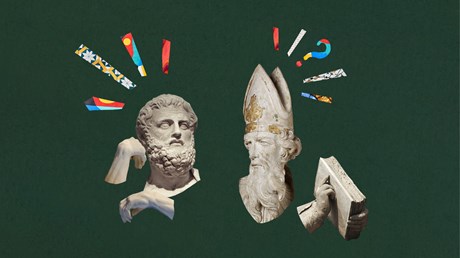Its main rivals seek truth without transcendence, or justice without redemption. And both flatten the meaning of human existence.

College and university professors in the liberal arts (humanities, social sciences, and natural sciences) are almost entirely left-leaning, liberal, or progressive, and this is especially true among faculty in the humanities and social sciences. The trend is even more pronounced in certain selective schools.
Students who attend liberal arts colleges or universities often adopt more liberal or progressive points of view as a result of their education. There are many great literary depictions of this transformation and the ensuing alienation that often results when such students return home from college. (My favorite is in Flannery O’Connor’s short story “Revelation,” where a young woman in a doctor’s office throws her human development textbook at the unenlightened, uncouth, hometown character Ruby Turpin.)
Is this phenomenon accidentally related to the demography of the professoriate or somehow intrinsically related to the craft and content of the liberal arts themselves and the culture and atmosphere of the campus?
The terms “liberal” and “progressive” represent different political traditions in the West, and, when applied to the liberal arts, represent different approaches to education.
“Liberal” liberal arts education represents a modern vision of an Enlightenment-style view of objective truth pursued by rational and empirical methods. The “progressive” model, on the other hand, is often associated with postmodern visions of education, ones suspicious of privileged categories such as knowledge, truth, and understanding. It aims at dismantling systems of illegitimate power, ensuring equal outcomes, and achieving other goals connected to ...
from Christianity Today Magazine
Umn ministry


.gif)

.gif)
.gif)
